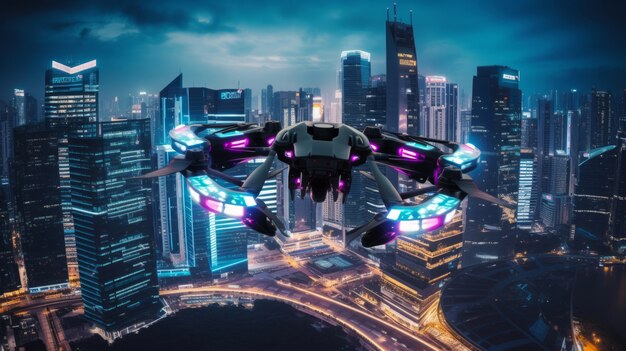
Sponsored article
Long-range drone technology is transforming how we see and interact with the world. While the potential these flying marvels hold is enormous, fully harnessing this potential is not without challenges. From applications in surveillance to revolutionizing the logistics sector, drones offer broad-reaching benefits. Nonetheless, privacy and regulatory issues, along with technical roadblocks, persist. This exploration dives into these aspects, presenting an insightful view of drone technology’s capabilities and challenges.
Embracing long range drone technology unveils a myriad of possibilities across several industries. The capabilities of this advanced technology are vast and transformative. Long-range drone technology can cover vast distances without the need for human interaction, offering greater efficiency and precision in tasks such as surveillance, deliveries, and disaster management. The potential of this technology transcends traditional limits, enabling faster reaction times, increasing productivity, and reducing operational costs. The future holds immense promise for the increased adoption and refinement of long range drone technology.
The diverse applications of long-range drones have revolutionized many industries with their versatility and efficiency. A prominent example can be seen in the agricultural sector. Here, drones in agriculture are exceptionally beneficial, offering high-level precision in monitoring crops, assessing soil health, and even in crop dusting. Besides agriculture, long-range drones also play a significant role in surveillance. They provide real-time data, enabling faster response times and enhanced security measures. Furthermore, the logistics domain is equally reaping the benefits with drones transforming delivery processes, ensuring timely and safer goods transportation. Indeed, the potential of long-range drone technology for these diverse applications continues to be exploratory, pushing boundaries towards a more digitized future.
Despite the immense potential of long-range drone technology in diverse applications, several challenges hamper its full-scale implementation. Tight regulations pose a significant roadblock, with governments worldwide striving to balance innovation and safety. Businesses and tech entrepreneurs operating in this field have to navigate complex law landscapes which in many cases constrain experimentation and development. Alongside, privacy issues escalate with the potential widespread use of drone technology. With drones having the capability to reach remote and personal areas, addressing privacy concerns becomes mandatory to ensure ethical utilization. Furthermore, technical obstacles such as limited battery life, unreliable connectivity and the need for sophisticated controllers also inhibit the full-fledged application of this technology. Highlighting these challenges is key to spur necessary reforms for unlocking the untapped potential of drone technology.